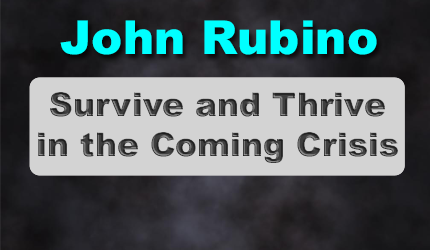April 12, 2024 | The MSM Is Dying, NPR Edition

Not so long ago, almost everyone listened to NPR, and people of every political persuasion donated to help fund its ad-free, long-form journalism.
Then everything changed. The reporting became weirdly biased and listeners — correctly perceiving that NPR was playing for Team Establishment rather than objectively reporting on big issues — started tuning out. Today’s NPR traffic looks like that of CNN or the Washington Post, which is to say marching steadily towards oblivion.

Last week a former NPR exec published an explanation:
I’ve Been at NPR for 25 Years. Here’s How We Lost America’s Trust
(Free Press) – Uri Berliner, a veteran at the public radio institution, says the network lost its way when it started telling listeners how to think.
You know the stereotype of the NPR listener: an EV-driving, Wordle-playing, tote bag–carrying coastal elite. It doesn’t precisely describe me, but it’s not far off. I’m Sarah Lawrence–educated, was raised by a lesbian peace activist mother, I drive a Subaru, and Spotify says my listening habits are most similar to people in Berkeley.
I fit the NPR mold. I’ll cop to that.
So when I got a job here 25 years ago, I never looked back. As a senior editor on the business desk where news is always breaking, we’ve covered upheavals in the workplace, supermarket prices, social media, and AI.
It’s true NPR has always had a liberal bent, but during most of my tenure here, an open-minded, curious culture prevailed. We were nerdy, but not knee-jerk, activist, or scolding.
In recent years, however, that has changed. Today, those who listen to NPR or read its coverage online find something different: the distilled worldview of a very small segment of the U.S. population.
If you are conservative, you will read this and say, duh, it’s always been this way.
But it hasn’t.
For decades, since its founding in 1970, a wide swath of America tuned in to NPR for reliable journalism and gorgeous audio pieces with birds singing in the Amazon. Millions came to us for conversations that exposed us to voices around the country and the world radically different from our own—engaging precisely because they were unguarded and unpredictable. No image generated more pride within NPR than the farmer listening to Morning Edition from his or her tractor at sunrise.
Back in 2011, although NPR’s audience tilted a bit to the left, it still bore a resemblance to America at large. Twenty-six percent of listeners described themselves as conservative, 23 percent as middle of the road, and 37 percent as liberal.
By 2023, the picture was completely different: only 11 percent described themselves as very or somewhat conservative, 21 percent as middle of the road, and 67 percent of listeners said they were very or somewhat liberal. We weren’t just losing conservatives; we were also losing moderates and traditional liberals.
Read the rest of this long, fascinating, disheartening article here. And be sure to check out the comments, which mostly validate the author’s experience. Two representative examples:
This article really resonates with me. Until ca. 2020, I was a passionate NPR listener and frequent donor. But then, I noticed a shift–the programming became so one-sided, so woke, so fixated on left-progressive ideological positions that I couldn’t tolerate it anymore. When they had a long segment on post-partum depression that referred to mothers throughout as “pregnant people” and when they shifted the discourse around homelessness to talk about “unhoused people,” I sensed an Orwellian Newspeak conformism that turned me off. NPR is a lost cause when it comes to enlightening journalism.
I quit NPR at least 10 years ago, 15 the NYT, and in the odds The New Yorker and The Atlantic. These political organs are not in the news or even the serious commentary business, because that assumes the news. They don’t report new stories because new stories tend to undermine settled narratives. They are not interested in finding the facts and building out a big picture in the time frame in which it is important. Alternative media and even citizen journalism is infinitely more satisfying, if also disconcerting in the picture it broadly presents of a corrupt and incompetent establishment bent on clinging to power at your, and the world’s, expense, and by means of endless propaganda, the suppression of free speech, the criminalization of opposition, and the manipulation of elections through disinformation and algorithms. Regular media decided to sign up with this.
And just this morning Matt Taibbi and Walter Kirn of Racket News chimed in with “NPR’s Greatest Hits.” The relevant part starts at 5:15:

On one hand, NPR’s demise is a sad goodbye to an old friend. On the other hand, it’s fun to watch the marketplace of ideas pass judgment on legacy media outlets that diss their audience.
STAY INFORMED! Receive our Weekly Recap of thought provoking articles, podcasts, and radio delivered to your inbox for FREE! Sign up here for the HoweStreet.com Weekly Recap.
John Rubino April 12th, 2024
Posted In: John Rubino Substack











